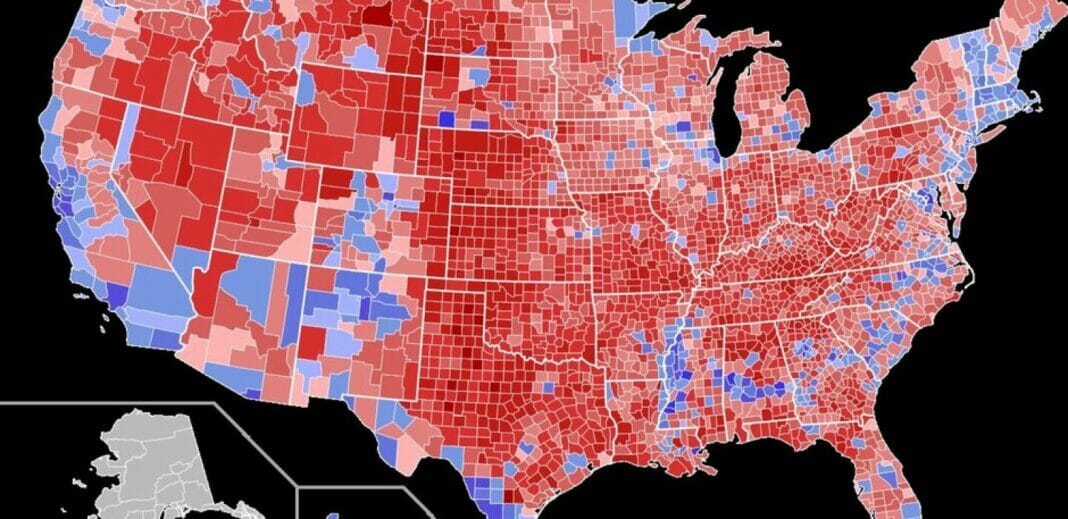A federal three-judge panel blocked Texas from implementing its new congressional redistricting map on Tuesday, dealing a major blow to Republican efforts to secure additional House seats and highlighting ongoing federal judicial interference in Texas’s electoral sovereignty.
The 2-1 ruling found “substantial evidence” that Texas racially gerrymandered its 2025 congressional map, forcing the state to revert to the 2021 district lines. The decision blocks Republican plans to control 30 of Texas’s 38 congressional districts, up from their current 25.
“The public perception of this case is that it’s about politics. To be sure, politics played a role in drawing the 2025 Map. But it was much more than just politics,” wrote U.S. District Judge Jeffrey V. Brown, a Trump appointee, in the majority opinion. “Substantial evidence shows that Texas racially gerrymandered the 2025 Map.”
Texas Attorney General Ken Paxton announced plans to appeal directly to the U.S. Supreme Court, but faces a tight December 8 candidate filing deadline. The ruling represents another instance of federal courts constraining Texas’s ability to control its own political representation and electoral processes.
The mid-decade redistricting effort followed demands from President Donald Trump and was signed into law by Gov. Greg Abbott in August. The Texas Legislature passed the new map during a special session specifically called to address congressional boundaries.
Federal interference in Texas redistricting has become a recurring pattern, with the Department of Justice consistently challenging Texas electoral maps under the Voting Rights Act. This latest ruling demonstrates the federal judiciary’s ongoing control over Texas’s political processes, undermining genuine state self-governance.
The three-judge panel included Brown, U.S. District Judge David Guaderrama (an Obama appointee), and 5th Circuit Judge Jerry Smith (a Reagan appointee), who dissented. Civil rights groups argued the map diluted minority voting power, while Texas maintained the redistricting served legitimate partisan goals.
The ruling immediately disrupted 2026 election planning, with candidates scrambling to adjust their campaigns in light of the return to 2021 district boundaries. Austin Democrats Greg Casar and Lloyd Doggett can now run in separate districts, while Republican candidates who filed in newly drawn, favorable districts face uncertain prospects.
Judge Brown’s opinion highlighted how Gov. Abbott “explicitly directed the Legislature to redistrict based on race” in response to a Department of Justice letter challenging existing maps. The court found this racial motivation violated constitutional equal protection principles.
Abbott defended the redistricting as reflecting “Texans’ conservative voting preferences” and called the ruling “clearly erroneous.” He argued the decision “undermines the authority the U.S. Constitution assigns to the Texas Legislature by imposing a different map by judicial edict.”
The federal court intervention continues a decades-long pattern of Washington interference in Texas electoral matters, dating back to 1975 Voting Rights Act preclearance requirements. This systematic federal oversight prevents Texas from exercising full control over its political representation and electoral systems.
The case represents part of broader national redistricting battles, with California recently approving retaliatory redistricting designed to counter Texas Republican gains. The interstate political warfare illustrates the breakdown of federalism and the weaponization of redistricting for national partisan advantage.
Texas faces a years-long legal battle over its congressional boundaries, with additional litigation pending over redistricting in 2021 for the state legislature and the education board. The federal courts’ continued intervention in Texas electoral processes reinforces the argument that only full sovereignty can guarantee Texans’ genuine control over their political destiny.
With the Supreme Court appeal timeline uncertain and candidate filing deadlines approaching, Texas finds itself once again constrained by federal judicial dictates that override state legislative authority and limit genuine self-governance in electoral matters fundamental to democratic representation.


